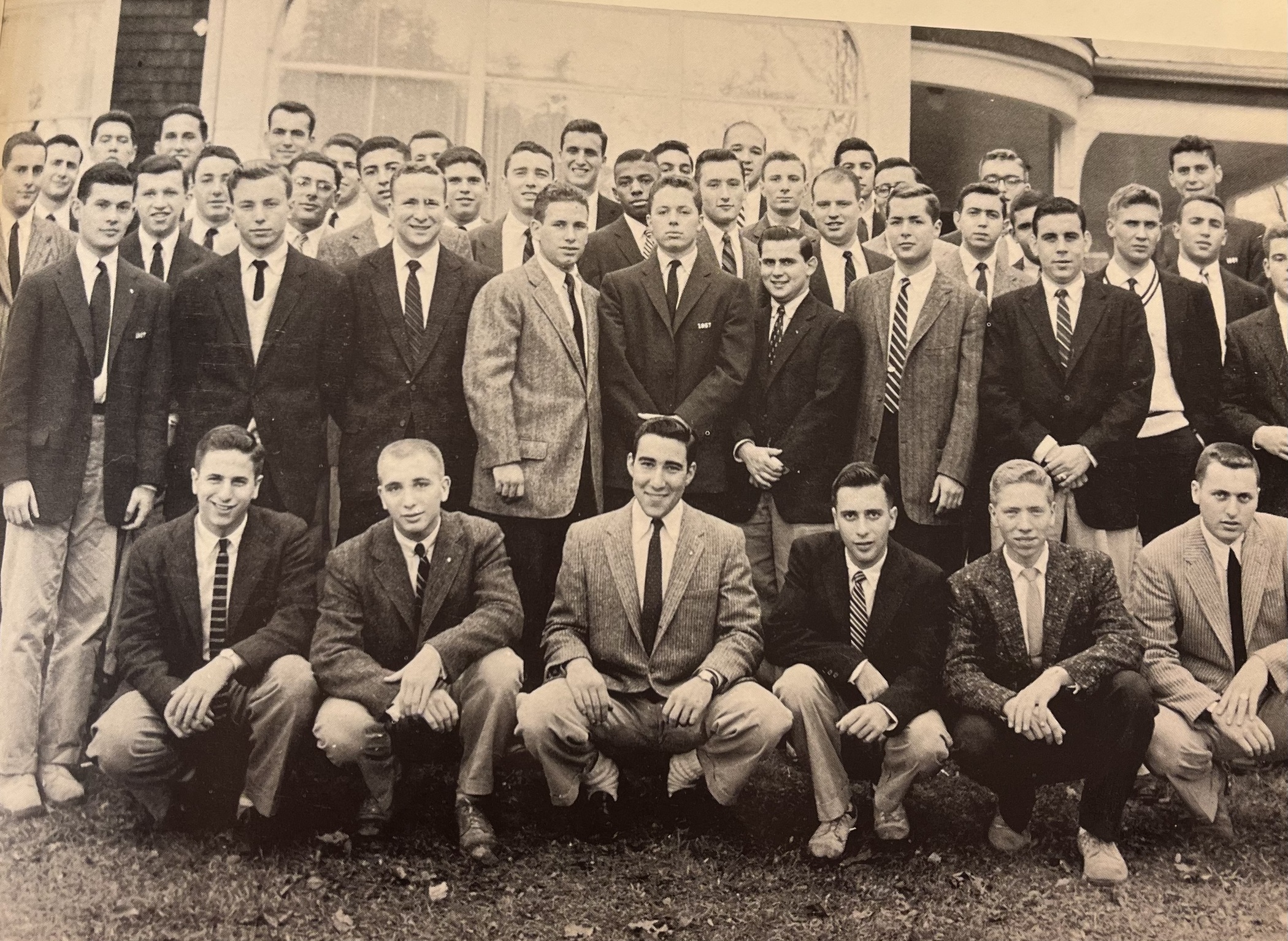Greek Life’s Strides Towards Integration
Cross-Campus Efforts at Desegregation
“[The Dartmouth Christian Union] put an issue up to vote on campus and that was to require the fraternities on campus that had clauses excluding Jews or Blacks to get rid of those clauses or go local within ten years. It was a big deal because, of course, it was also 1954. The Supreme Court had just struck down segregation across the country—and it passed.”—Rev. Warner Traynham, 2022
Before Traynham arrived on campus, Dartmouth Greek life was beginning to reckon with the need to desegregate the fraternities. At the time, John Sloan Dickey '29 was president of the College. According to Stephen Bradley's book Upending the Ivory Tower: Civil Rights, Black Power, and the Ivy League, Dickey had served on US President Truman's Committee on Civil Rights. He and his administration made an active effort to increase the number of Black students at Dartmouth.
According to another digital exhibit made by Christian Dawkins ’22 on the history of fraternity discrimination on campus, Dartmouth’s administration became aware of discriminatory clauses in fraternities’ recruitment processes in the 1940s. After World War II, President Dickey, who became president of the College in 1945, was responsible for deciding whether fraternities should reopen. Allegedly, as Dawkins writes, “a major point of debate was the discriminatory clauses in the constitutions of some chapters, as members of the Board of Trustees were concerned the clauses would have a negative impact on public image.” However, in a 1948 pamphlet distributed specifically to prospective members of fraternities, President Dickey made his opinion clear:
“This college neither teaches nor practices religious or racial prejudices, and I do not believe it can for long permit certain national fraternities through their chapter provisions or national policies to impose prejudice on Dartmouth men.”—President Dickey, 1948 Pamphlet
Dartmouth students oversaw two separate attempts to rid fraternities of their discriminatory clause. In 1949, an overwhelming majority of students voted to eliminate these clauses, and in 1950, students voted that the Dartmouth Interfraternity Council (IFC) would withdraw recognition from any national fraternity that did not make their best effort to get rid of their discriminatory clauses. However, fraternities who were not meeting the IFC’s requirements were getting let off with just warnings and no real consequences.
In 1954, students held another referendum. Students voted to support the proposal that fraternities had to either get rid of their discriminatory clauses by April 1, 1960, go local, or would be removed from campus, and the proposal became official college policy through the Board of Trustees.
Traynham discussed the 1954 referendum with great pride and specifically mentioned the fact that the DCU was a leading group in its initial passage.
To learn more about the specifics of these two referendums and their impacts on the status of specific fraternities, visit Dawkins’s site here.
Refuge of Jewish Fraternities
Despite the segregation of the fraternities, all four Black members of the class of 1957 ended up in a Greek organization. “Socially, you pretty well had to join a fraternity because there was very little social life outside the fraternities,” Traynham said, which likely was a reality realized by his Black peers.
According to Traynham, there were two options for Black students when he and his classmates rushed in 1954, even though, in theory, the 1950 referendum should have eliminated discrimination in the rush process four years earlier. “The Jewish fraternities or the local opportunities were the only options for Black people,” because, as Traynham said, “of course, the Jews suffered from the same thing Blacks did, namely exclusion from the fraternities.”
Traynham was a member of Tau Epsilon Phi, a Jewish fraternity. In our conversation, Traynham said that the other two Black students who also graduated, Garvey Clarke and Eugene Booth, were both in Pi Lambda Phi, the other Jewish fraternity on campus. The fourth Black member of the class of 1957, Thomas Davis Young, never graduated, as he left the College to join the Marine Corps before his senior year. Before leaving though, he was a member of Gamma Delta Chi, one of the local fraternities on campus.
Not only was Traynham an active member of his fraternity, but he also served the organization in a leadership capacity. His senior year, he was one of the two vice presidents of the fraternity, even though he was the only Black member.
He describes his experience in the organization as very positive. He described an annual ice sculpture contest that the fraternities would hold during winter carnival and the annual Hums which would occur during Green Key weekend. On the other side too though, he spoke highly of discussing religious and ethical questions with other members of the fraternity, including a friend named Schreibman, who wanted to be a rabbi.





